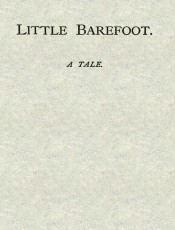my dear and kind barbara alexievna,—i feel that i am guilty, i feel that i have sinned against you. yet also i feel, from what you say, that it is no use for me so to feel. even before i had sinned i felt as i do now; but i gave way to despair, and the more so as recognised my fault. darling, i am not cruel or hardhearted. to rend your little soul would be the act of a blood-thirsty tiger, whereas i have the heart of a sheep. you yourself know that i am not addicted to bloodthirstiness, and therefore that i cannot really be guilty of the fault in question, seeing that neither my mind nor my heart have participated in it. nor can i understand wherein the guilt lies. to me it is all a mystery. when you sent me those thirty kopecks, and thereafter those two grivenniks, my heart sank within me as i looked at the poor little money. to think that though you had burned your hand, and would soon be hungry, you could write to me that i was to buy tobacco! what was i to do? remorselessly to rob you, an orphan, as any brigand might do? i felt greatly depressed, dearest. that is to say, persuaded that i should never do any good with my life, and that i was inferior even to the sole of my own boot, i took it into my head that it was absurd for me to aspire at all—rather, that i ought to account myself a disgrace and an abomination. once a man has lost his self-respect, and has decided to abjure his better qualities and human dignity, he falls headlong, and cannot choose but do so. it is decreed of fate, and therefore i am not guilty in this respect. that evening i went out merely to get a breath of fresh air, but one thing followed another—the weather was cold, all nature was looking mournful, and i had fallen in with emelia. this man had spent everything that he possessed, and, at the time i met him, had not for two days tasted a crust of bread. he had tried to raise money by pawning, but what articles he had for the purpose had been refused by the pawnbrokers. it was more from sympathy for a fellow-man than from any liking for the individual that i yielded. that is how the fault arose, dearest. he spoke of you, and i mingled my tears with his. yes, he is a man of kind, kind heart—a man of deep feeling. i often feel as he did, dearest, and, in addition, i know how beholden to you i am. as soon as ever i got to know you i began both to realise myself and to love you; for until you came into my life i had been a lonely man—i had been, as it were, asleep rather than alive. in former days my rascally colleagues used to tell me that i was unfit even to be seen; in fact, they so disliked me that at length i began to dislike myself, for, being frequently told that i was stupid, i began to believe that i really was so. but the instant that you came into my life, you lightened the dark places in it, you lightened both my heart and my soul. gradually, i gained rest of spirit, until i had come to see that i was no worse than other men, and that, though i had neither style nor brilliancy nor polish, i was still a man as regards my thoughts and feelings. but now, alas! pursued and scorned of fate, i have again allowed myself to abjure my own dignity. oppressed of misfortune, i have lost my courage. here is my confession to you, dearest. with tears i beseech you not to inquire further into the matter, for my heart is breaking, and life has grown indeed hard and bitter for me—beloved, i offer you my respect, and remain ever your faithful friend,
makar dievushkin.
